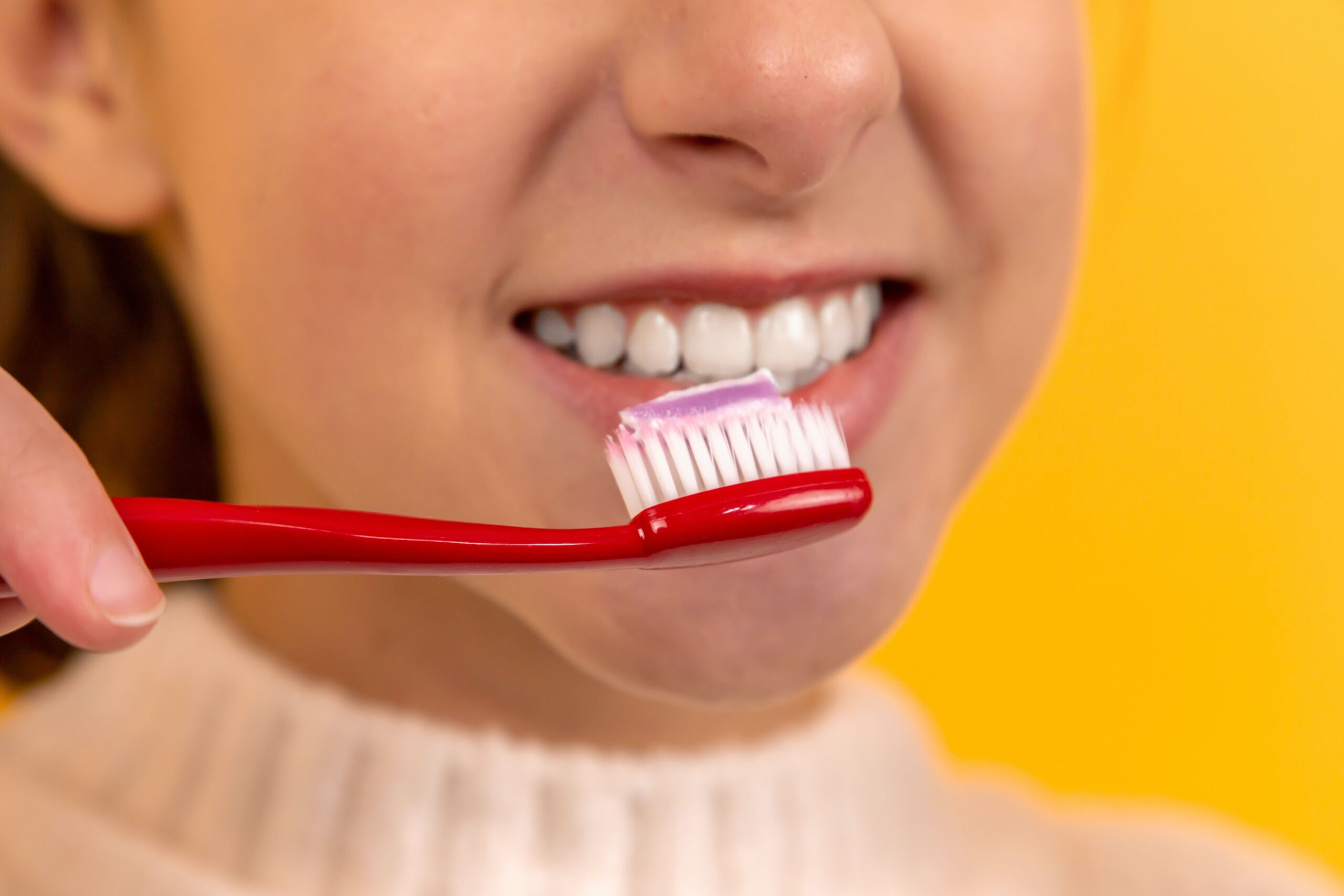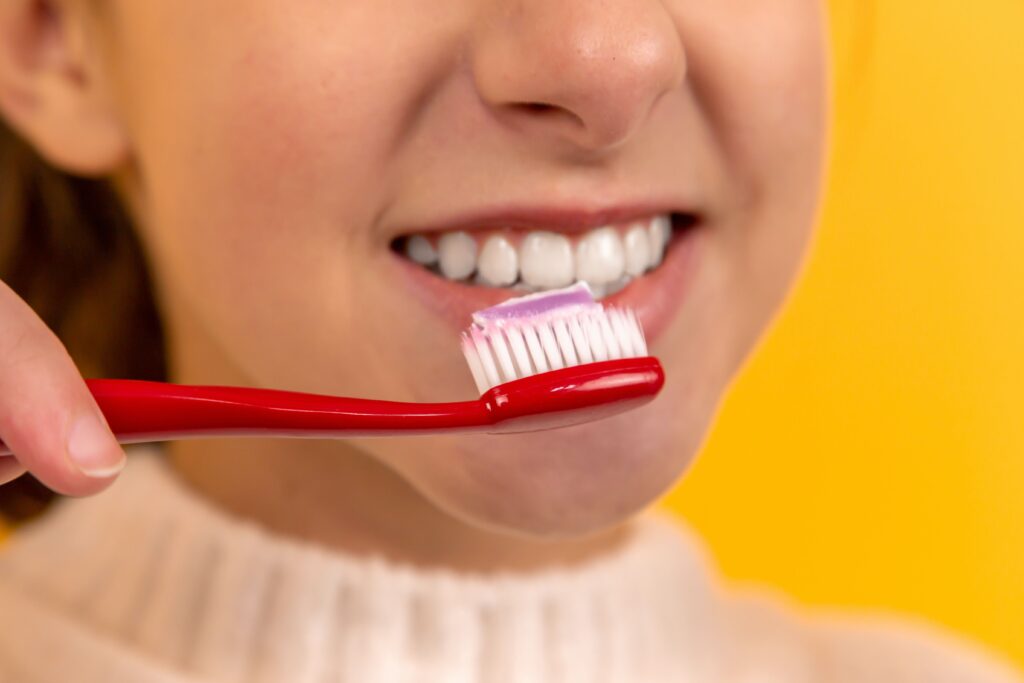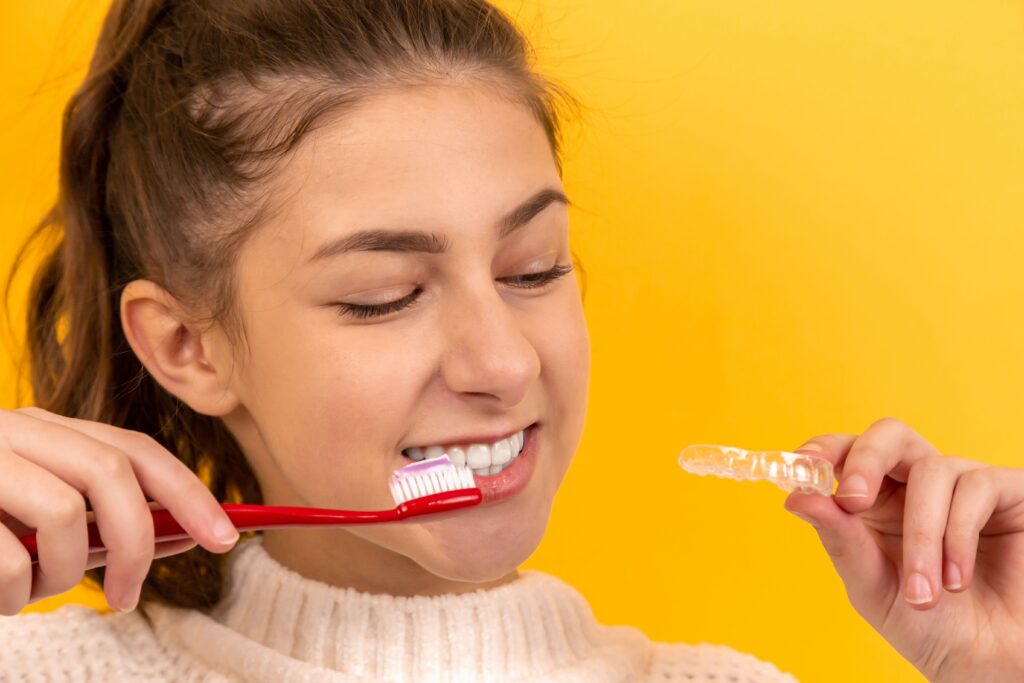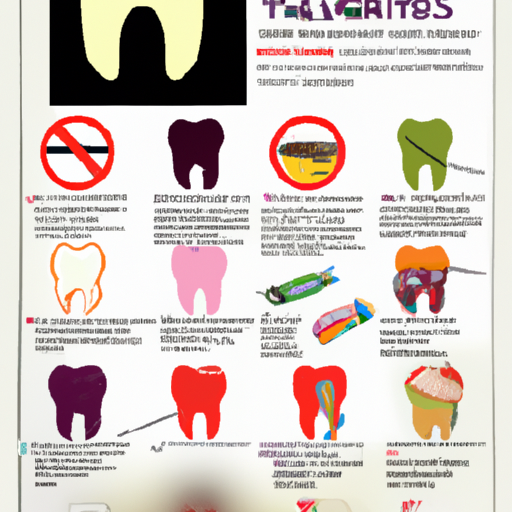
Are you looking to maintain a healthy smile? We all know that oral health plays a crucial role in our overall well-being. That’s why it’s important to be mindful of the foods and beverages that we consume. In this article, we will explore the top 10 worst foods and beverages for your teeth. By being aware of these harmful culprits, you can make informed choices and protect the health of your pearly whites. So, let’s dive in and uncover the enemies of your smile!

This image is property of images.unsplash.com.
Sugary Foods and Beverages
Soda
Soda, with its high sugar content and acidity, is one of the worst beverages for your teeth. The combination of sugar and carbonation in soda not only provide fuel for harmful bacteria in your mouth, but the acidic nature of this fizzy drink can also erode the enamel on your teeth over time. Regular consumption of soda can lead to cavities, tooth decay, and even tooth loss.
Candy
We all know that candy is packed with sugar, but did you know that it can be particularly harmful to your teeth? Sticky candies, such as caramel and taffy, are the worst culprits, as they tend to stay on your teeth for longer periods of time, allowing bacteria to feed on the sugar and produce harmful acids. Snacking on candy throughout the day can greatly increase your risk of tooth decay and cavities.
Cookies
While cookies may seem harmless, especially if they don’t contain any sticky fillings or frosting, they can still be detrimental to your oral health. The high sugar content in cookies contributes to the formation of plaque, a sticky film of bacteria that coats your teeth. If left untreated, plaque can lead to gum disease and tooth decay. So, it’s important to enjoy cookies in moderation and maintain a good oral hygiene routine.
Cakes and Pastries
Indulging in cakes and pastries every now and then is a delightful treat, but it’s essential to be mindful of their impact on your teeth. Similar to cookies, cakes and pastries can be packed with sugar, contributing to the growth of harmful bacteria in your mouth. Additionally, these treats often contain refined carbohydrates, which can break down into sugars that attack the enamel of your teeth. It’s best to brush your teeth or rinse your mouth with water after consuming cakes and pastries to minimize the risk of tooth decay.
Sticky Foods
Dried Fruits
Although dried fruits may seem like a healthy alternative to sugary snacks, they can actually be harmful to your teeth. Dried fruits are naturally sweet and sticky, making them a perfect breeding ground for bacteria and acid production. Moreover, the concentrated sugars in dried fruits can adhere to your teeth and stay in contact with them for prolonged periods, increasing the risk of cavities. It’s advisable to rinse your mouth with water after consuming dried fruits and maintain good oral hygiene practices.
Chewy Caramels
Chewy caramels may be irresistibly delicious, but they can wreak havoc on your teeth. Their sticky texture allows them to cling to your teeth, attracting bacteria and promoting acid buildup. The longer chewy caramels stay in your mouth, the higher the chances of tooth decay and cavities. It’s best to avoid or limit your intake of chewy caramels and opt for healthier snack options instead.
Acidic Foods and Beverages
Citrus Fruits
Citrus fruits, like oranges and grapefruits, are known for their high levels of vitamin C and refreshing taste. However, they also contain high amounts of citric acid, which can wear away the enamel on your teeth if consumed in excess. It’s important to enjoy citrus fruits in moderation and rinse your mouth with water afterward to reduce the acidity level in your mouth.
Pickles
Pickles are a popular addition to sandwiches and salads, but they can be detrimental to your dental health. Most pickles are made through a process called pickling, which involves soaking food in an acidic solution, such as vinegar. As a result, pickles can be highly acidic and erode the enamel on your teeth over time. Limit your consumption of pickles and be sure to rinse your mouth with water afterward to neutralize the acid.
Tomato Sauce
Tomato sauce is a staple in many cuisines, but its acidity can pose a threat to your teeth. The high levels of acid in tomato sauce can weaken your tooth enamel, making your teeth more vulnerable to cavities and decay. To minimize the impact of tomato sauce on your teeth, consider consuming it as part of a meal, rather than consuming it on its own. Additionally, drinking water or rinsing your mouth with water after eating tomato sauce can help neutralize its acidity.
Starchy Foods
Potato Chips
Potato chips may be a popular snack option, but they can have adverse effects on your dental health. When consumed, starchy foods like potato chips break down into simple sugars, which can contribute to the growth of harmful bacteria in your mouth. Additionally, the crunchy texture of potato chips can easily get lodged between your teeth, increasing the risk of plaque buildup and tooth decay. It’s advisable to floss after consuming starchy snacks and maintain good oral hygiene practices.
White Bread
White bread is a staple in many households, but it’s important to be aware of its impact on your teeth. The refined carbohydrates in white bread can break down into sugars, which can fuel the growth of harmful bacteria in your mouth. This can lead to the formation of plaque and increase the risk of tooth decay. Consider opting for whole grain bread or other healthier alternatives to minimize the potential damage to your teeth.

This image is property of images.unsplash.com.
Alcoholic Beverages
Hard Liquor
Hard liquors, such as whiskey, vodka, and rum, can negatively affect your oral health in multiple ways. Firstly, alcoholic beverages are often acidic, which can erode the enamel on your teeth over time. Secondly, alcohol can cause dehydration, leading to a decrease in saliva production. Saliva plays a crucial role in maintaining oral health by neutralizing acids and washing away food particles. Therefore, excessive alcohol consumption can increase your risk of tooth decay and gum disease. Moderation is key when it comes to consuming alcoholic beverages for the sake of your dental health.
Wine
While a glass of wine can be enjoyable, it’s essential to be aware of its potential impact on your teeth. Red and white wines are both acidic and can stain your teeth. The acidity in wine can erode your tooth enamel, making your teeth more susceptible to decay and sensitivity. Additionally, the dark pigments in red wine can cause visible stains on your teeth. To minimize the effects of wine on your teeth, consider drinking water alongside your glass of wine to rinse away the acidity and brush your teeth thoroughly after enjoying your drink.
Carbonated Drinks
Energy Drinks
Energy drinks may give you a boost of energy, but they can be quite detrimental to your dental health. Most energy drinks contain high levels of sugar and acidity, creating the perfect environment for bacteria to thrive and produce harmful acids. The combination of sugar and acidity can lead to tooth decay and erosion of the tooth enamel. It’s recommended to limit your consumption of energy drinks and opt for healthier alternatives, such as water or natural fruit juices.
Sports Drinks
Sports drinks are often marketed as a way to replenish electrolytes and enhance performance, but they can be harmful to your teeth. Similar to energy drinks, sports drinks are typically high in sugar and acidity, increasing the risk of tooth decay and enamel erosion. It’s best to reserve sports drinks for intense physical exercise or opt for water as a more tooth-friendly hydration option.

This image is property of images.unsplash.com.
Coffee and Tea
Black Coffee
Black coffee may be your go-to beverage for a morning pick-me-up, but it can have negative effects on your teeth. Coffee is known to stain teeth due to its dark pigments, and the acidity in coffee can wear away the enamel, leading to tooth sensitivity and vulnerability to cavities. To mitigate the impact of black coffee on your teeth, consider using a straw to minimize contact with your teeth or rinsing your mouth with water afterward to neutralize the acidity. Additionally, regular dental cleanings and whitening treatments can help remove coffee stains and keep your teeth healthy.
Black Tea
Similar to coffee, black tea can also stain your teeth and weaken their enamel due to its dark color and acidity. While black tea does contain beneficial antioxidants, it’s essential to enjoy it in moderation and take steps to protect your teeth. Drinking unsweetened black tea or using a straw can help minimize direct contact with your teeth. Additionally, rinsing your mouth with water after consuming black tea can help reduce its staining and acidity.
Ice and Cold Foods
Ice Chewing
Chewing on ice may seem harmless, but it can be detrimental to your teeth. The hardness and temperature of ice can cause microscopic cracks in your tooth enamel, making your teeth more susceptible to damage and tooth sensitivity. Additionally, chewing on ice can overwork your jaw muscles and increase the risk of jaw pain and headaches. It’s best to avoid chewing on ice altogether and opt for other alternatives to stay refreshed, such as drinking cold water or eating popsicles.
Ice Cream
Ice cream, although a delicious treat, can be detrimental to your teeth if consumed in excess. Ice cream is high in sugar, which can feed the bacteria in your mouth and lead to cavities. Additionally, the cold temperature of ice cream can cause tooth sensitivity, particularly if you already have sensitive teeth. Enjoying ice cream in moderation and maintaining good oral hygiene practices can help minimize its impact on your teeth.

Sour Candies
Sour Gummies
Sour gummies may be a tangy and popular snack choice, but they are not tooth-friendly. Sour candies are highly acidic and contain high levels of sugar, creating an environment conducive to tooth decay. Additionally, the chewy texture of sour gummies can stick to your teeth for longer periods, prolonging the exposure of your teeth to acidity and increasing the risk of cavities. It’s best to limit your consumption of sour gummies and opt for healthier snack alternatives.
Sour Patches
Similar to sour gummies, sour patches are a type of sour candy that can be harmful to your teeth. The combination of high acidity and sugar in sour patches can contribute to tooth decay and erosion of the tooth enamel. Regularly consuming sour patches can increase the risk of cavities and dental problems. It’s advisable to enjoy sour patches in moderation and maintain a good oral hygiene routine to protect your teeth.
Citrus Juices
Orange Juice
Orange juice is a popular breakfast beverage, but its high acidity and natural sugars can pose a risk to your dental health. The high acid content in orange juice can erode your tooth enamel, making your teeth more prone to decay. Additionally, the sugar in orange juice can contribute to the growth of harmful bacteria in your mouth. It’s best to consume orange juice in moderation and rinse your mouth with water afterward to neutralize the acidity.
Grapefruit Juice
Grapefruit juice, similar to orange juice, is highly acidic and can be detrimental to your teeth. Its high acid content can erode your tooth enamel and increase the risk of decay and sensitivity. Grapefruit juice also contains natural sugars that can contribute to plaque formation. Consider drinking grapefruit juice alongside a meal and rinsing your mouth with water afterward to minimize its impact on your teeth.
